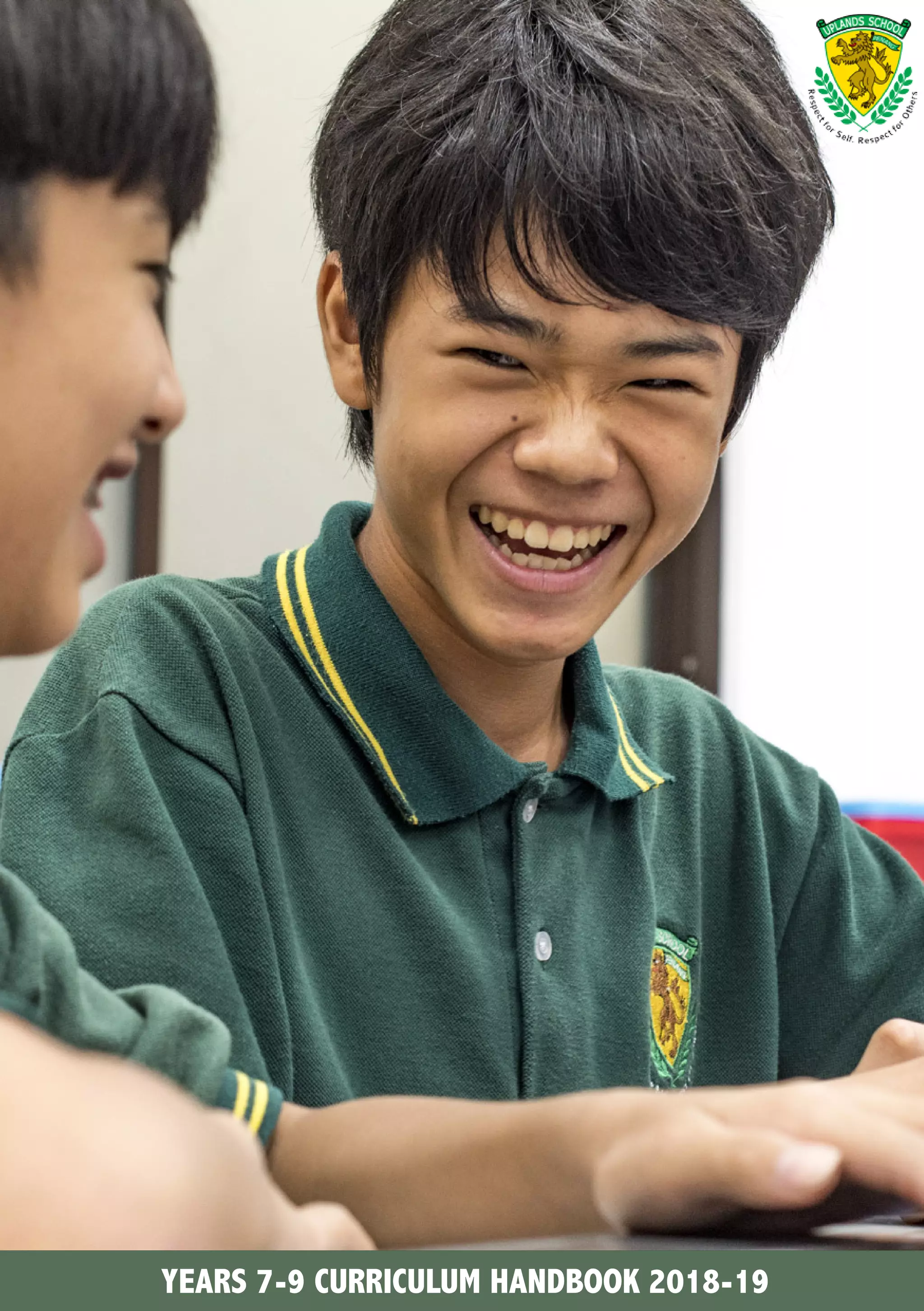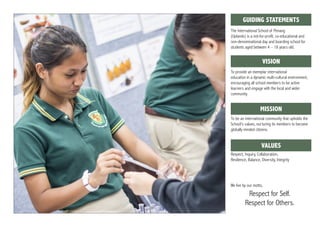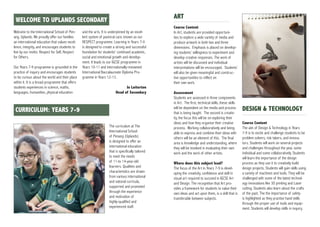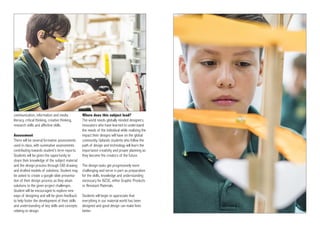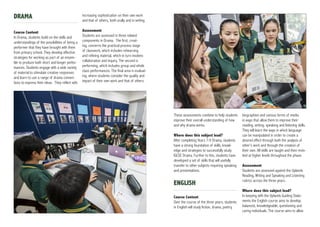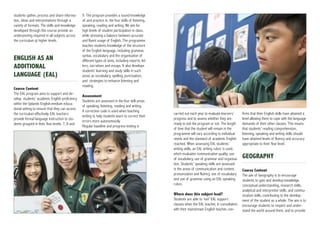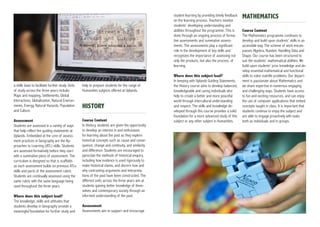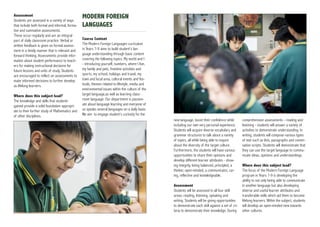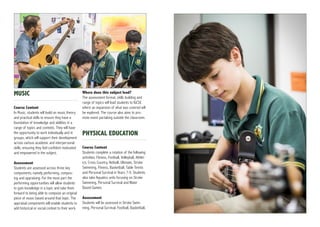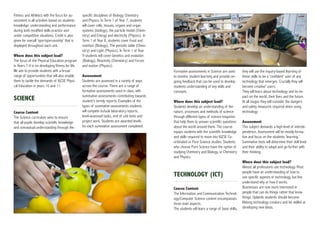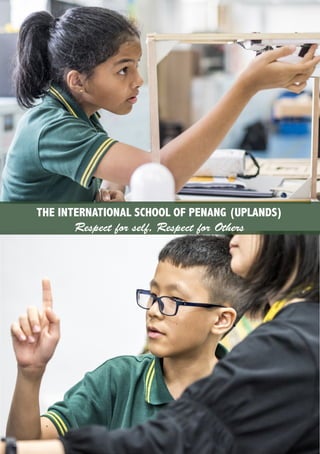This document provides an overview of the curriculum for Years 7-9 at The International School of Penang (Uplands). It includes brief descriptions of the subjects offered - Art, Design & Technology, Drama, English, and English as an Additional Language. The curriculum is designed to offer an international education and develop skills like inquiry, critical thinking, and communication. Subjects aim to lay the foundation for continued academic growth and prepare students for IGCSE qualifications. Assessment methods evaluate technical skills, creativity, knowledge and understanding in subjects.
